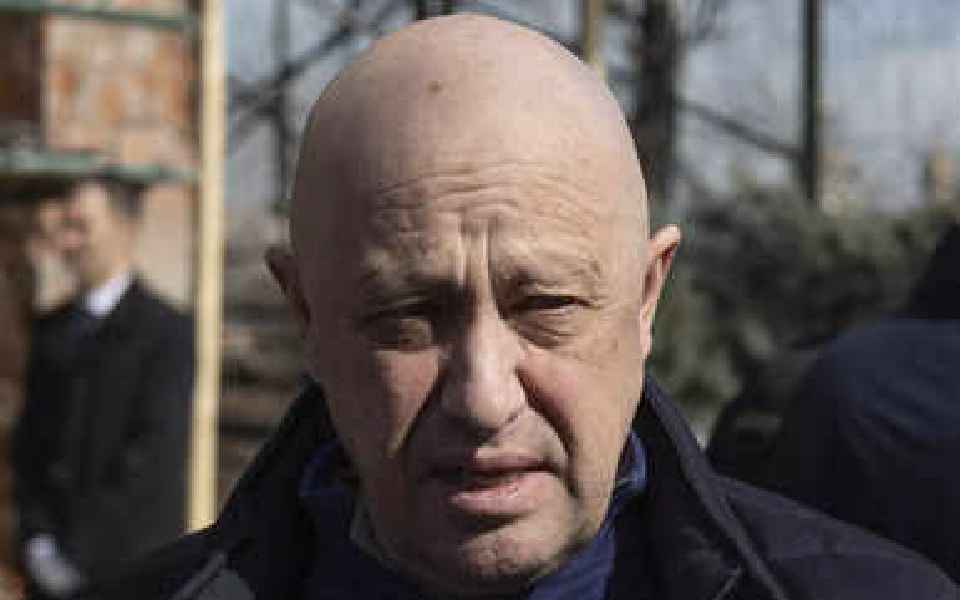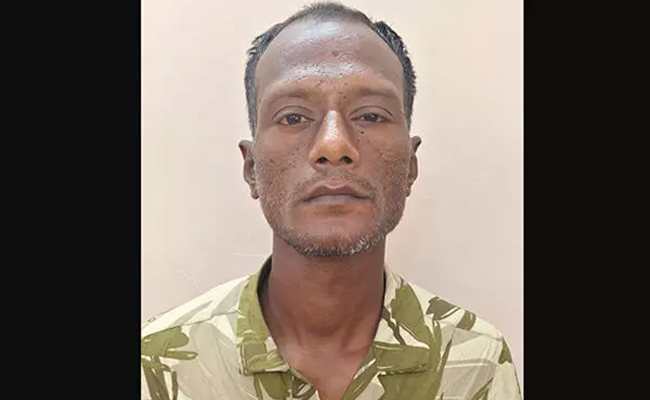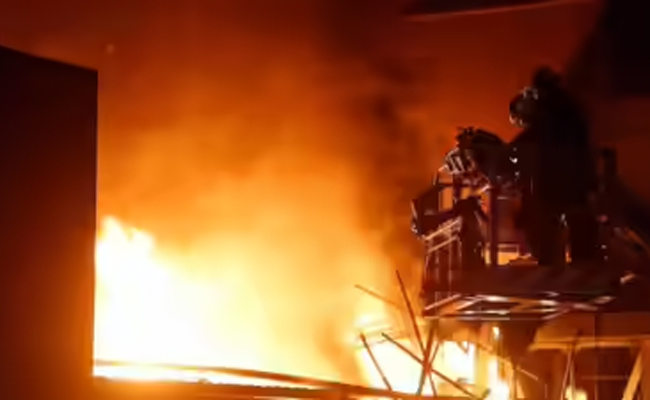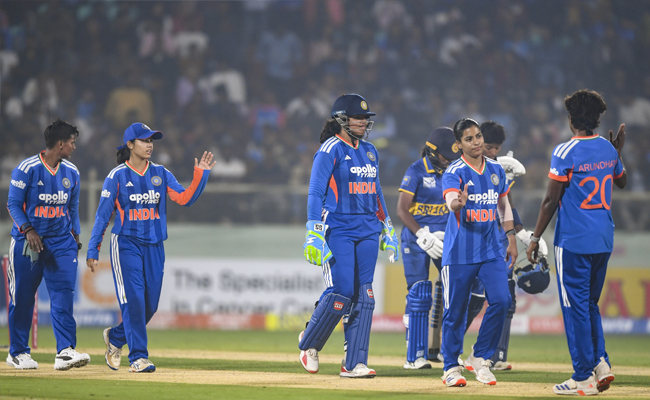Kyiv, May 24: The head of the Russian private army Wagner has again broken with the Kremlin line on Ukraine, saying its goal of demilitarising the country has backfired, acknowledging Russian troops have killed civilians and agreeing with Western estimates that he's lost more than 20,000 men in the battle for Bakhmut.
Yevgeny Prigozhin said about half of those who died in the eastern Ukrainian city were Russian convicts recruited for the 15-month-old war.
His figures stood in stark contrast to Moscow's widely disputed claims from that just over 6,000 of its troops were killed throughout the war as of January. By comparison, official Soviet troop losses in the 1979-89 Afghanistan war were 15,000.
Ukraine hasn't said how many of its soldiers have died since Russia's full-scale invasion began in February 2022.
White House officials said Wednesday that Prigozhin's comments were in line with their own estimates that Russian losses have accelerated.
The White House estimated this month that Russian forces had suffered 100,000 casualties, including 20,000 killed in fighting, since December. White House National Security Council spokesman John Kirby said then that about half of those killed were Wagner forces.
Analysts believe many of those killed in the nine-month fight for Bakhmut were Russian convicts with little military training.
Prigozhin himself a former convict has frequently criticized Russian military officials for not supplying his troops with enough ammunition. He also has questioned their tactics, commitment and leadership capabilities, and complained they haven't sufficiently credited his forces for battlefield successes.
He's highlighted his forces' sacrifices and on Saturday touted what he claims is the capture of the city of Bakhmut.
In an interview published late Tuesday with Konstantin Dolgov, a pro-Kremlin political strategist, he went even further in his criticism questioning some of Russian President Vladimir Putin's rationale for the war.
Prigozhin said Russia's goal of "demilitarizing" Ukraine has backfired because Kyiv's military has become stronger with Western weapons and training.
In invading Ukraine, Putin also cited the need to increase Russia's security and prevent Ukraine from joining NATO. Since the war began, Ukraine has applied to join NATO, and cross-border attacks into Russia itself have increased.
In the interview, Prigozhin also challenged Moscow's vehement denials that Russian forces had killed civilians.
Prigozhin, a wealthy businessman with longtime links to Putin, is known for his bluster often spiced with obscenities and has previously made unverifiable claims from which he later backtracked.
Earlier this month, his media team published a video of him shouting, swearing and pointing at about 30 uniformed bodies on the ground, saying they were Wagner fighters who died in a single day. He claimed the Russian Defense Ministry had starved his men of ammunition, and he threatened to give up the fight for Bakhmut.
Prigozhin has frequently warned of a counteroffensive that Ukrainian officials have said they're planning, and in Tuesday's interview, he said that, given continued Western support, Kyiv's forces might succeed in pushing Russian troops out of all territory they occupy in southern and eastern Ukraine, as well as annexed Crimea.
"A pessimistic scenario: the Ukrainians are given missiles, they prepare troops, of course they will continue their offensive, try to counterattack," he said. "They will attack Crimea, they will try to blow up the Crimean bridge (to the Russian mainland), cut off (our) supply lines. Therefore we need to prepare for a hard war."
Prigozhin's admission of heavy losses appears to show the impact of Ukraine's strategy. Ukrainian officials have said their goal in Bakhmut was to exhaust and deplete Russian forces, distract them from protecting territory they occupy elsewhere, and buy time for more Western weapons and ammunition supplies to arrive, and training to be completed.
Russia's largest state-run and pro-Kremlin media did not report Prigozhin's interview, posted in a Telegram channel with only 50,000 followers, making it unlikely to be widely seen in Russia.
Nor did Russian military bloggers, whose popular Telegram pages are important sources of information about the war to many Russians, mention it.
On the battlefield, the Ukrainian General Staff said Wednesday that "heavy fighting" was continuing inside Bakhmut, days after Russia claimed it had completely captured the devastated city. Bakhmut lies in Donetsk province, one of four Russia illegally annexed last fall and only partially controls.
The head of Ukraine's ground forces, Oleksandr Syrskyi, said Kyiv's forces "are continuing their defensive operation" in Bakhmut, with unspecified "successes" on its outskirts. He didn't elaborate.
A Ukrainian commander in Bakhmut told The Associated Press on Tuesday that the Ukrainians planned to trap the Russians.
"Now we don't need to fight in Bakhmut. We need to surround it from flanks and block it," Yevhen Mezhevikin said. "Then we should sweep' it. This is more appropriate, and that's what we are doing now."
Elsewhere, more attacks continued in a border region that Russian officials had claimed had calmed down after one of the most serious incursions since the war began. Russian forces shot down "a large number" of drones in Russia's southern Belgorod region, a local official said Wednesday, a day after Moscow announced that its forces crushed a cross-border raid from Ukraine.
The drones were intercepted overnight, Belgorod Gov. Vyacheslav Gladkov said on Telegram, and another was shot down Wednesday just outside the regional capital, also called Belgorod.
He said no one had been hurt, but property had been damaged.
Ukrainian officials made no immediate comment.
In Moscow, Russian Defense Minister Sergei Shoigu vowed to respond "promptly and extremely harshly" to such attacks.
Details of the incident in the rural region, about 80 kilometers (45 miles) north of the city of Kharkiv in eastern Ukraine and far from the war's front lines, are unclear.
Moscow blamed the incursion on Ukrainian military saboteurs. Kyiv described it as an uprising against the Kremlin by Russian partisans.
It was impossible to reconcile the two versions, to say with certainty who was behind the attack or to ascertain its aims.
The region is a Russian military hub holding fuel and ammunition depots. The Belgorod region, like the neighbouring Bryansk region and other border areas, has seen sporadic spillover from the war.
Let the Truth be known. If you read VB and like VB, please be a VB Supporter and Help us deliver the Truth to one and all.
Udupi: The Udupi police have arrested another accused in connection with a case involving employees of a Malpe–Cochin Shipyard limited allegedly sharing confidential information related to the Indian Navy with Pakistan in exchange for money.
The arrested accused has been identified as Hirendra Kumar, alias Bharat Kumar Khadayata (34), a resident of Kailas Nagar in Ananda taluk of Gujarat.
With this arrest, the total number of accused arrested in the case has risen to three. Earlier, on November 21, police arrested Rohit and Santri, both hailing from Uttar Pradesh. They are currently in judicial custody.
According to the police, Rohit and Santri were working in a joint venture company operating at the Malpe Shipyard.
A case was registered at the Malpe Police Station after it was found that confidential details, including a list of Indian Navy ship numbers and other sensitive information, were allegedly shared with Pakistan through WhatsApp, leading to illegal monetary gains.
Hirendra Kumar was arrested on December 21 by a team led by Karkala Sub-Division Assistant Superintendent of Police Harsha Priyamvada, the investigating officer in the case. Police stated that the accused had allegedly procured a mobile SIM card in his name for a fee and handed it over to the other accused for use in the illegal activity.
He was produced before the court, and further investigation is underway, police officials said.





